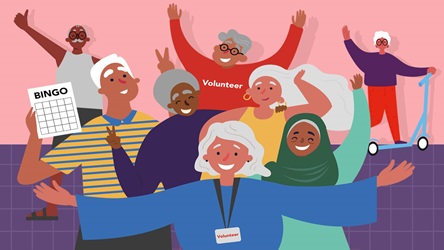Trending: The Esports Issue

A Trend To Watch
The new opium?
Within 10 years, the playing of video games has become a billion-dollar industry in 2019 and transformed enthusiasts into millionaires. With a market value worth US$1 billion in 2019, and projected to surpass US$2 billion in 2021 according to gaming research firm Niko Partners, investors are queueing to pump money into the industry and establish competitive teams for tournaments. According to gaming and esports research firm Newzoo, the economic potential is huge, especially in Southeast Asia, the fastest growing region in the world for esports with 9.5 million players. It has spurred the region’s gaming hubs in Malaysia and Singapore to establish academies that teach strategies and techniques. But is it all a bed of roses for avid gamers? Mounting mental and physical pressures have forced a good number of competitors to retire in their mid-20s. Many young gamers have also succumbed to addiction, forcing authorities in China to establish controversial boot camps that use military tactics to detox them. But how can countries allow this industry to thrive without unleashing its dangerous toxins?
Global Outlook
How esports is making an impact on countries around the world
China

According to the Chinese government, half its population – around 700 million people – will suffer from myopia by 2020. This includes 90% of all young adults. The main culprit is video games. Last year, authorities mandated that all new games must be licensed before they are published. To combat myopia among youth, they have also tightened the approval rules. Since its implementation, the roll-out of new games in January 2019 has dropped by 64%, year-on-year.
The US

After American football scholarships, esports is fast becoming the next big thing among colleges in the US, as more among them are cashing in to enrol esport players. According to the National Association of College Esports, nearly 200 colleges are now giving scholarships worth US$15 million (S$20 million) per year to woo esports elites to their campuses – an increase of nearly 2,900% from just seven colleges in 2016.
South Korea

The lure of big money has caused esports to rear its ugly head in South Korea. In a practice called “boosting”, highly-skilled players are hired to elevate the rankings of other players by playing for them. In December 2018, the South Korean government passed a law criminalising the practice. Offenders can be jailed for up to two years and fined 20 million won (S$23,000). The law is aimed at maintaining a healthy esports ecosystem in the country.
Singapore

Singapore Sports Hub, together with local esports organisation Team Flash, launched Singapore’s first esports training facility at the OCBC Arena in March 2019 to train emerging local talents. The aim is to increase Singapore’s medal chances at the 2022 Asian and 2019 Southeast Asian games, when esports will make its debut. The facility will also host regular workshops and community engagement efforts to boost the profile of esports.
Argentina

The Argentine Association of Electronic Sports and government have drafted a proposed law to exclude violent video games in esports. In the bill, these are defined as “everything that shows images of fury, aggression or cruelty”. A clause explicitly excludes the first-person shooter genre from esports. This means that some of the world’s most popular games, such as DOTA 2 and Counter-Strike, will no longer be regarded as esports in Argentina.
Explainer
Esports vs traditional sports
Competitive sports began formally from the ancient Olympics in 776 BC. In contrast, the first esports event was held in 1972 at Stanford University, when students pitted their skills in Spacewar! to win a year's subscription to Rolling Stone magazine.
Professionally, players from both activities compete in major leagues, tournaments and world championships that are governed by rules. They can be penalised, disqualified and even permanently banned for violations.

With a global audience of around 320 million people, esports is no longer considered niche. But whether it should be considered a sport in the traditional sense has been the subject of heated debates. Detractors argue that sports demand a degree of athletic ability, whereas esports players mostly sit in front of screens. But supporters point out that video game players must apply strategic thinking to defeat an opponent and, therefore, should be classified as sports.
But despite receiving the Asian and Southeast Asian Games nod, the International Olympic Committee has yet to give esports the greenlight.
Learn The Lingo
CC = Crowd Control

In a massive multiplayer online game (MMOs), these are abilities that a character uses to limit, trap or disable other opponent mobs, in order to reduce the number of opponents that can be fully activated.
Cheese

Unlike the edible variety, cheese in MMOs is widely frowned upon. It is a term that describes effortless, but powerful, strategies players exploit to defeat their opponents. In the gaming world, winning from a cheese strategy is considered undeserving.
Meta

An acronym for "most effective tactics available". A game's meta refers to the strongest strategies available in a competitive game.
Related stories:
- POSTED ON
Jun 25, 2019
- TEXT BY
Wong Wing Lum
- ILLUSTRATION BY
Samantha Seah









